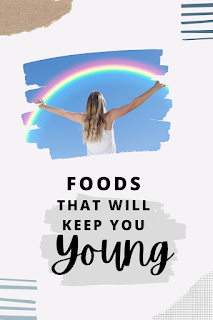The steady tick of a grandfather clock. The digital display on your phone showing another minute has passed.
For most people, these are simply markers of daily life.
But for those experiencing chronophobia—an extreme fear of the passage of time—these reminders can trigger overwhelming anxiety and dread.
While the concept might seem abstract, chronophobia emerged as a surprisingly common phenomenon during the Covid-19 pandemic, affecting people who had never previously struggled with time-related anxiety.
Understanding this condition and its treatment options has become increasingly relevant as we navigate an era where time feels both precious and uncertain.
More Than Birthday Blues
Chronophobia extends far beyond the occasional melancholy of aging or wishing you were more productive. This recognized anxiety disorder involves intense feelings of dread about time's passage, often accompanied by depression and obsessive behaviors. The condition manifests differently for each individual—some feel time is racing by too quickly, while others experience it as moving unbearably slowly.
"Chronophobia has its roots somewhere in the past; it is not random," explains psychotherapist Kaire Davidson. "Even when we speak about triggers, such as a life-threatening health condition or a loss, we need to understand the bigger context of someone's life, because not everyone will respond in the same way to these triggers."
The condition frequently overlaps with thanatophobia—the fear of death—and creates an overwhelming sense of powerlessness against time's relentless march. What makes chronophobia particularly challenging is that unlike many phobias, the feared object cannot be avoided or escaped.
Who's Most at Risk?
Traditionally, chronophobia has been most prevalent among elderly individuals, those with serious illnesses, people who have experienced near-death situations, and individuals in institutional settings. The condition is sometimes called "prison neurosis" or "institutional neurosis," reflecting its recognition as a psychiatric disorder affecting those in prolonged confinement.
However, the pandemic dramatically expanded chronophobia's reach. Research published in the Asian Journal of Psychiatry documented a significant increase in time-related anxiety among the general population, particularly affecting people in their thirties. The hypothesis suggests this demographic was uniquely impacted because pandemic restrictions interfered with typical life milestones—marriage, home ownership, family planning—while time continued its inexorable progression.
The forced adherence to rigid schedules and the feeling of "living by the clock" during lockdowns created conditions where time became an enemy rather than a neutral backdrop to daily life. For many, the pandemic highlighted how little control we actually have over our life's timeline.
The Ripple Effects
Davidson describes chronophobia as "a state of frequent or near-constant anxiety—and life in near-constant anxiety, as we can imagine, is living hell." The condition creates a vicious cycle where anxiety about the future prevents individuals from experiencing present-moment joy or satisfaction.
This chronic state of temporal anxiety can devastate multiple life areas. Relationships suffer when one partner is constantly preoccupied with time's passage. Career advancement becomes difficult when focus and follow-through are compromised by persistent worry. Physical health deteriorates under constant stress, and the inability to be present can lead to clinical depression.
Perhaps most tragically, chronophobia robs individuals of the very thing they're trying to preserve—meaningful engagement with their limited time on earth.
Finding Freedom from Time's Tyranny
Treatment for chronophobia typically addresses the underlying anxiety through multiple approaches. Short-term interventions focus on grounding techniques that anchor individuals in the present moment. Davidson recommends starting small with five-minute daily practices involving the five senses, mindful breathing, or body-oriented activities like tai chi, martial arts, or yoga.
For more severe cases, pharmaceutical interventions such as selective serotonin reuptake inhibitors (SSRIs) or benzodiazepines may provide relief alongside therapeutic approaches. Cognitive behavioral therapy has shown particular promise in helping individuals recognize and modify anxious thought patterns and behaviors related to time.
Alternative treatments including hypnotherapy and support groups offer additional pathways to healing, recognizing that chronophobia's deeply personal nature may require varied therapeutic approaches.
The Deeper Work
Long-term recovery often requires exploring fundamental questions about meaning, loss, and spiritual identity. Davidson emphasizes that therapy's value lies not just in symptom management but in understanding "how we got here" and developing a sense of agency over one's experience.
"This is a complex and potentially hugely debilitating issue, but I think therapy can help," she notes. "It can help us understand how we got here and, in a way, demystify how we're feeling. I believe this is crucial, and can offer hope, as well as an emerging sense of agency."
Reclaiming Your Relationship with Time
While time's passage remains inevitable, the distress associated with chronophobia is entirely treatable. The condition's increased visibility during the pandemic has led to better understanding and more accessible treatment options.
For business leaders and professionals who pride themselves on time management and efficiency, recognizing chronophobia's symptoms becomes particularly important. The drive to maximize productivity can inadvertently fuel time-related anxiety, creating a professional culture where the fear of wasted time becomes pathological.
The key to overcoming chronophobia lies in shifting from fighting time to finding peace within its constraints. This doesn't mean accepting mediocrity or abandoning ambition—rather, it involves cultivating the ability to be fully present while working toward future goals.
If the symptoms described resonate with your experience, consider this recognition an opportunity rather than a diagnosis. Professional help is available, and recovery is possible. The goal isn't to stop time or control its passage, but to reclaim your ability to live meaningfully within its embrace.
Time will continue its steady march regardless of our relationship with it.
The question isn't how to stop the clock, but how to dance with time rather than fight against it !!
















